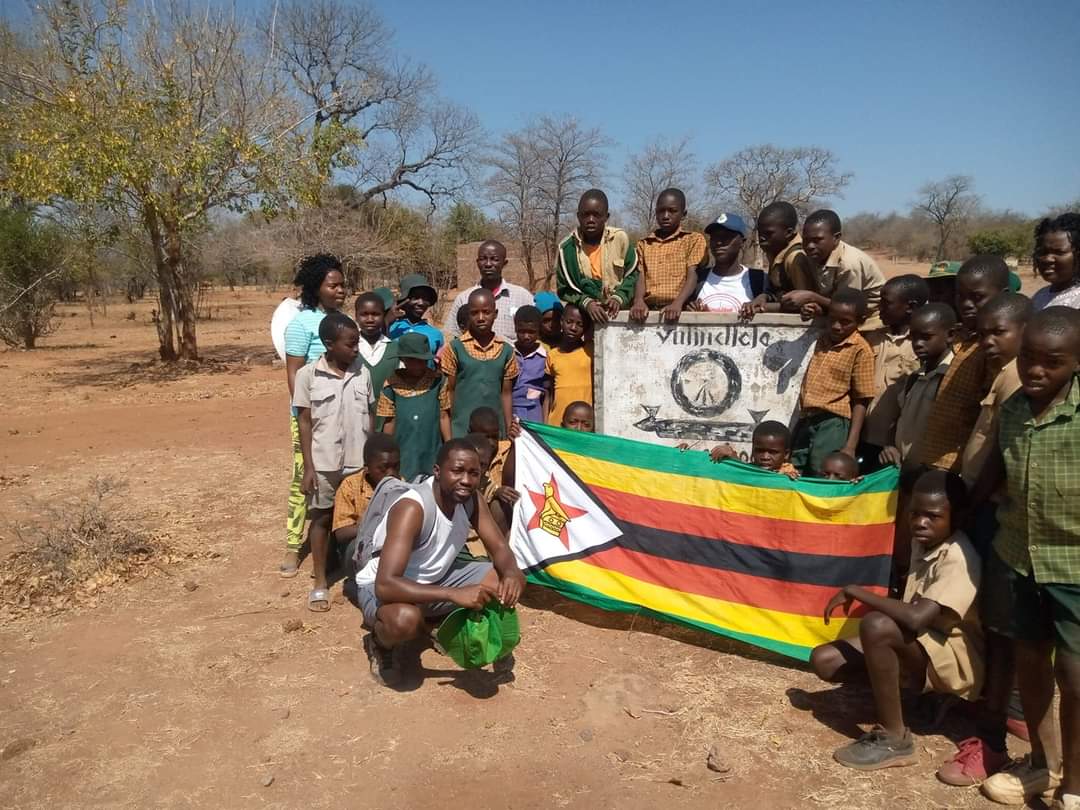BY STAFF REPORTER
A former Victoria Falls security guard has made it his mission to ensure that every needy child in Hwange has a school uniform after being touched by the plight of a mother who stopped him in the streets to seek help.
Tendai Moyo recently walked over 40 kilometres around Victoria Falls rural communities to seek donations for struggling school children in the district, especially in Hwange West.
Moyo, a former security guard at the government-run Victoria Falls Hospital says he was inspired to start the “Walk for UniformS” when a certain woman approached him begging to be assisted with a school uniform for her son to go to Form 1.
Moyo told VicFallsLive that he was determined to ensure that every child in the district has a decent uniform regardless of their background.
Below are excerpts from the interview.
Q) Please tell us briefly about yourself.
A) My name is Tendai Moyo and I am 40 years old.
I was born in Bulawayo and I grew up in Old Lobhengula suburb before moving to Victoria Falls in 2000 to work as a shop attendant at Power Sales before joining the Ministry of Health as a security guard before being promoted into being the human resources assistant at the same hospital.
I am also an assistant pastor at Celebration Church Victoria Falls.
It is the church that exposed me to opportunities to reach out and touch people’s lives through acts of kindness as I was leading the compassion ministry, a charity wing of the church.

Tendai Moyo and his backers during the walk
Q) What drove you to start the Walk for Uniforms initiative?
A) Before schools opened in January, I was approached by a lady who had a child who was supposed to go to Form One, but they did not have money for school uniforms and the fees and I put it out on Facebook seeking sponsors and a lady from the USA named Nomagugu reached out to assist.
She was a student at Chamabondo Primary School, so we came up with an idea to do something at her former school and we donated 38 uniforms before going to Chinotimba Primary School to donate in March and 27 at Baobab Primary School in July.
On the other side, the Celebration Church was doing a school shoe drive for 45 children at Simakade Primary School in Vulindlela Village and Mrs Nozipho Sambo approached us to partner with them by doing uniforms, and we did not have funds for the uniforms and the tailor was being evicted from his place of work, so I decided to jog to Masuwe Bridge three times a week as I thought about how we can help these children using the fitness and that’s how I then (last week) decided to walk 38 kilometres from Victoria Falls to Simakade Primary School.
Q) Which areas have you covered and what targets have you set for yourself?
A) We started this walk in Victoria Falls and we walked past Monde, Sizinda,Dibutibu, Chisuma, Jembwe, Cannan all the way to Vulindlela, a total of approximately 40 kilometres.
Because of the interactions I have had with the community of Chisuma and the surrounding areas, we have established a good working relationship with the community leadership.
The target was to match the Celebration Church shoe drive numbers, so that when they give 45 kids school shoes we also give them uniforms.
Normally that would have cost us US$450, but the tailors I work with Mr and Mrs Maguta offered to do the uniforms for free.
So US$150 will be enough for the fabric and through the walk I raised US$100 and we are short of US$50.

Q) How were your interactions with the communities and what target have you set for yourself in this initiative?
A) One observation that I made was that most of the kids in that school have never been to the Zambezi River.
I was saddened by that they stay right at the edge of the river, but they have never seen them even on television since there are no TV stations.
So one of my wishes is to find sponsors to take these kids to the falls and a cruise on the Zambezi River just to broaden their scope of life and that will allow them to dream even bigger than their limited worldview.
Q) What challenges have you faced as someone trying to do charitable worker who is based outside big cities such as Harare and Bulawayo where there is access to bigger sponsors?
It is very easy to get the likes and the encouragement when trying to raise money for charity, but it is very difficult to get the actual sponsors.
Maybe that is because I am doing this as an individual and some people are generally sceptical.
Q) Where can people find you?
A) I work at Victoria Falls Hospital HR department and I can be reached on 0774702106, tee4christ@gmail.comand for donations, one can drop them at Victory Pre-School (Celebration Church office) 561 Manyika RD Victoria Falls

 Slider3 years ago
Slider3 years ago
 National4 years ago
National4 years ago
 Tourism and Environment4 years ago
Tourism and Environment4 years ago
 Special reports4 years ago
Special reports4 years ago
 Opinion4 years ago
Opinion4 years ago
 National4 years ago
National4 years ago
 National3 years ago
National3 years ago
 National3 years ago
National3 years ago





